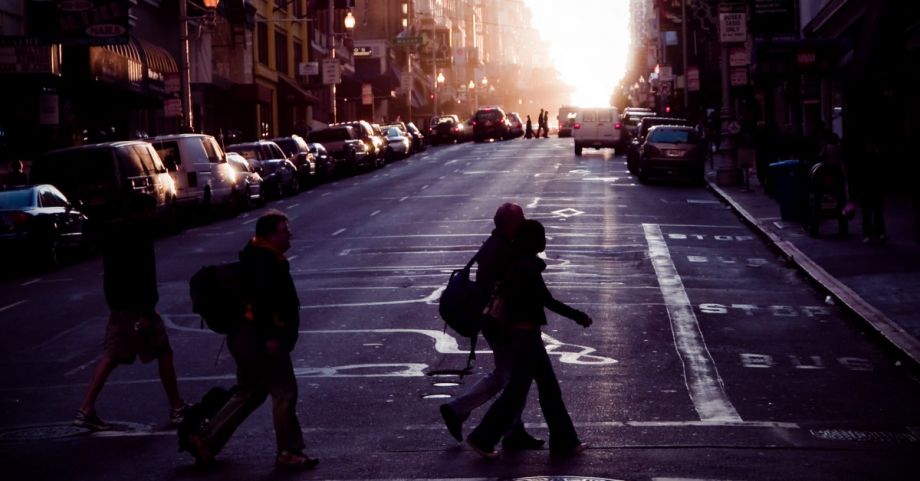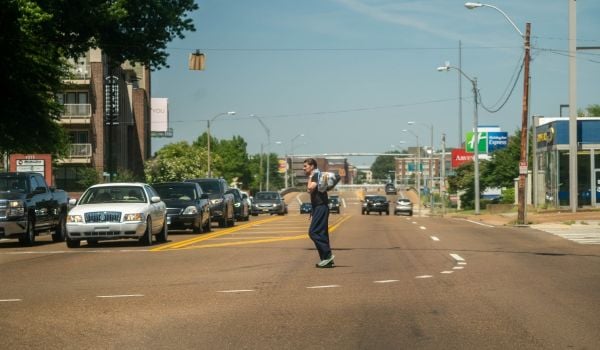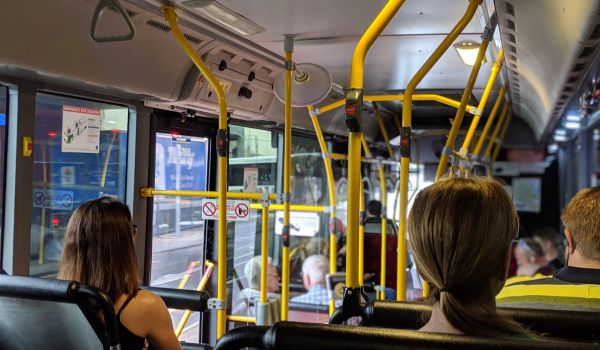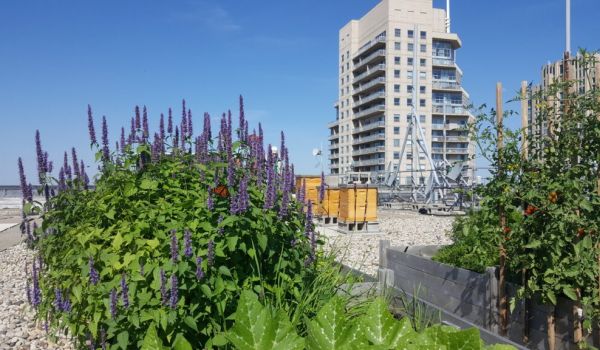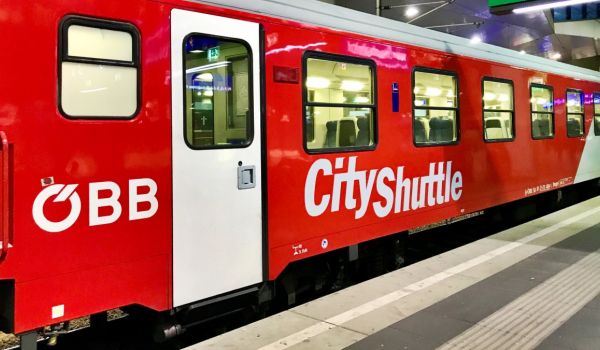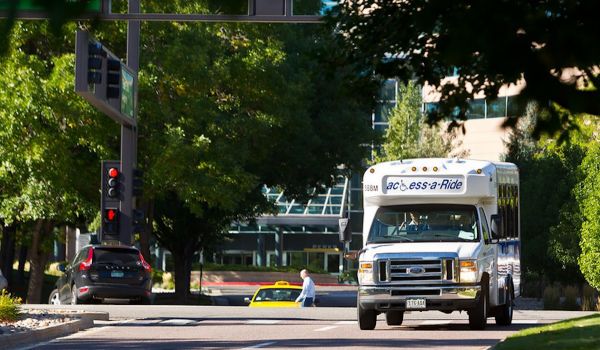Welcome to “The Mobile City,” our weekly roundup of noteworthy transportation developments.
The Infrastructure Bill Won’t Make Roads Safer
The bipartisan infrastructure bill Congress finally passed last week has drawn mixed reviews by advocates for active transportation and transportation in cities. While Streetsblog USA reports that urban transportation advocates in general lament the bill’s heavy tilt towards roads and auto infrastructure, they are pleased with its increased funding for public transportation and Amtrak. They also point to funding for alternative transportation and programs to make getting around easier and safer for vulnerable road users as concrete advances.
But one road safety advocate told Smart Cities Dive that the road spending would actually not do enough to make the roads safer. Amy Cohen, co-founder of Families for Safe Streets (New York), said, “While this legislation makes some incremental improvements, it did not go far enough. We desperately need a commitment and roadmap to achieving the goal of zero traffic deaths.”
However, in an essay in The Urbanist, city planner Scott Brody says that the real obstacle to making roads safer can be found in the federal government’s recipe book for road design: the Manual of Uniform Traffic Control Devices for Streets and Highways (MUTCD), whose 11th edition will be released soon.
Brody notes in his essay that road deaths have risen since the 10th edition of the MUTCD came out in 2009 and accelerated even more after 2020, when the COVID-19 pandemic put a dent in driving. The death toll is set to climb even higher this year.
When the Federal Highway Administration opened its proposed revisions to the MUTCD up for comment earlier this year, it received some 26,000 comments, many of them dismayed at the lack of concern for walkers and bike users in the standards. Congress itself had even weighed in on the subject in 2015, when that year’s infrastructure bill required the Transportation Secretary to “consider… the publication entitled ‘Urban Street Design Guide‘ of the National Association of City Transportation Officials (NACTO)” in writing the rules of urban road design.
But not only has the FHWA not done so, Brody says, it still displays hostility to other road users in its guidelines. He goes on to list a number of road designs included in the Urban Street Guide that remain completely absent from the MUTCD, such as “shared spaces,” or woonerfs, raised bike lanes and crosswalks, and wheelchair ramps placed away from corners. The manual also ignores the NACTO’s recommendation that “at larger intersections, crosswalks should be the norm.”
“We’ve known for years that the MUTCD enshrines dangerous design practices into law,” Sara Bronin, professor of law and city and regional planning at Cornell University, is quoted as saying in the essay. “The [FHWA’s] latest proposed update perpetuates many of the discredited features of the current version.”
Which, Brody says, raises the possibility that the MUTCD could be struck down in court as violating the 2015 law. Bronin’s own recommended course of action, though, was: “The only sensible solution is to follow the science behind modern transportation research to completely overhaul the MUTCD.”
Massachusetts Legislature Throws Cold Water on Boston Mayor’s Free-Transit Proposal
Michelle Wu, who will take office as Boston’s first non-white, non-male mayor in January, ran on a campaign platform that included a pledge to make public transit in the city fare-free.
But a news story on the proposal in the Boston Herald notes that this would require an okay from the state, which would have to agree to fill any funding gap left by the elimination of fares. And state elected officials are at best lukewarm and at worst hostile to the proposal.
At the hostile end: Republican Gov. Charlie Baker, who said bluntly on a WCVB-TV news program, “There’s no such thing as a free T. There’s no such thing as a free lunch.”
Baker later elaborated that he might be willing to consider a proposal that would have Bostonians fill the hole but that he saw no reason for taxpayers in the rest of the state to do so.
But even Wu’s fellow Democrats were less than enthusiastic about the idea. Both state Senate President Karen Spilka and House Speaker Ronald Mariano said they would want to talk with Wu before considering any free-fare proposal.
Base fares are $1.70 for bus routes and $2.40 for subways. Baker said that fares are “affordable and competitive” and were needed to support continued investment in the system.
The Massachusetts Bay Transportation Authority (MBTA) board in June voted to direct the agency to draft a program that would offer free fares for lower-income riders systemwide, but that board has since been replaced by a new one. The MBTA, a unit of the state Transportation Department, provides service to 178 cities and towns in the Greater Boston region.
New Contractor Chosen for Maryland Purple Line
Work on the stalled Purple Line LRT in Washington’s Maryland suburbs will resume soon now that the State of Maryland and the consortium that will operate the line have chosen a new contractor for the project.
Bethesda Magazine reports that the Maryland Department of Transportation Maryland Transit Administration (MDOT MTA) and Purple Line Transit Partners have picked Maryland Transit Solutions to finish the greatly delayed project.
Maryland Transit Solutions is a partnership between Dragados USA Inc. and OHL USA Inc. Purple Line Transit Partners called the joint venture “the best value” and touted Dragados’ work on a people mover at Los Angeles International Airport and three light rail projects in Canada as recommending the firm.
No work has taken place on the line since 2020, when the original construction partnership asked to be let go in the spring. That led to suits and countersuits that ended in an out-of-court settlement that cost Maryland $250 million in December. But a new partnership announced at the time of the settlement never got the go-ahead to resume work.
As of now, the Purple Line, which was to have opened this coming March, is at least two and a half years behind schedule. Even with the selection of a new contractor, no new date for completion has been announced. Delegate Marc Korman (D-Bethesda), who chairs a transportation subcommittee in the Maryland House, said, “I’ll say it is a positive step forward to get this back on track, but we still don’t know the true costs and the timetable, and those are pretty important issues.”
Know of a development that should be featured in this column? Send a Tweet with links to @MarketStEl using the hashtag #mobilecity.

Next City contributor Sandy Smith is the home and real estate editor at Philadelphia magazine. Over the years, his work has appeared in Hidden City Philadelphia, the Philadelphia Inquirer and other local and regional publications. His interest in cities stretches back to his youth in Kansas City, and his career in journalism and media relations extends back that far as well.
Follow Sandy .(JavaScript must be enabled to view this email address)

